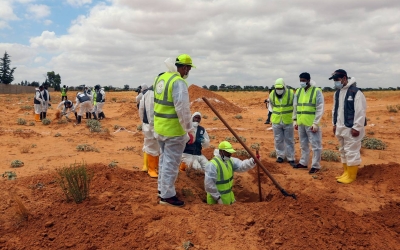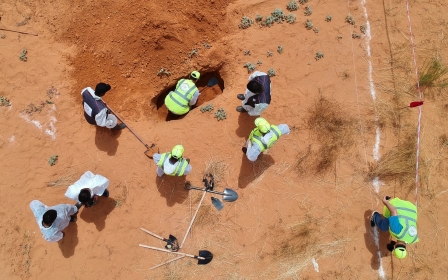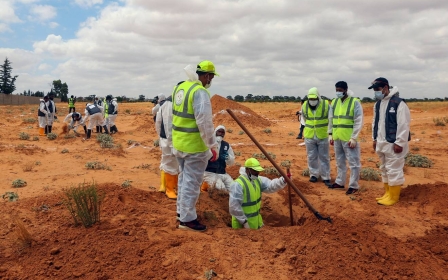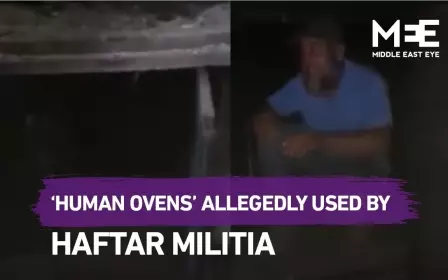Another three mass graves discovered in Libya's Tarhuna
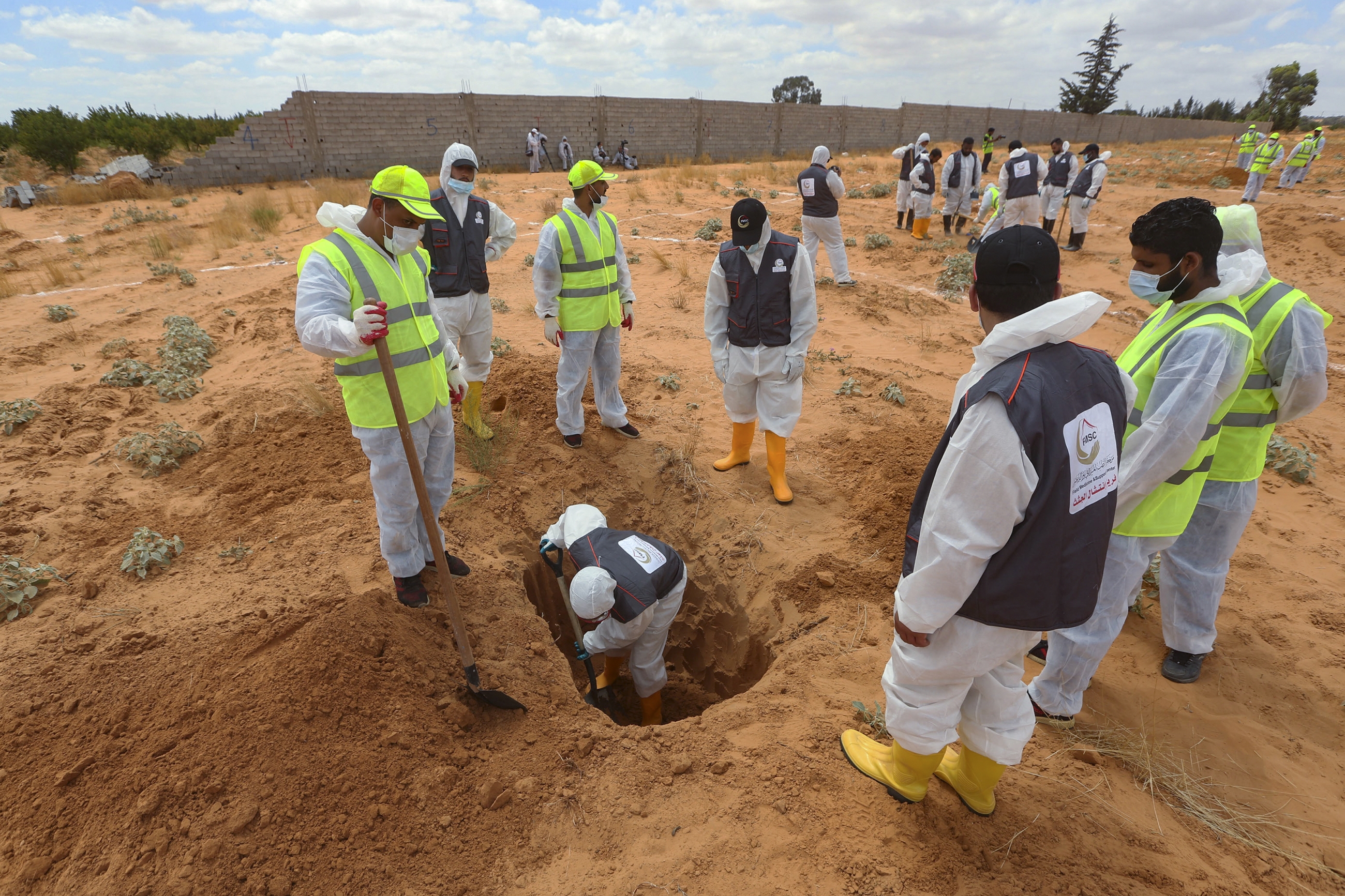
Three mass graves were discovered in the Libyan city of Tarhuna on Tuesday, with search teams finding the remains of at least eight people who were declared missing following the withdrawal of forces loyal to eastern commander Khalifa Haftar earlier this year, local media reported.
The General Authority for Search and Identification of Missing Persons, a body formed by Libya's internationally recognised government (GNA) to search for missing persons in Tarhuna, said the remains were located in three mass graves close to each other, the Libya Herald reported.
In July, the GNA discovered at least 226 bodies and remains in Tarhuna, a city 90 kilometres (56 miles) northeast of the capital Tripoli.
Tarhuna was the launchpad for Haftar's failed attempt to take control of Tripoli. His forces, backed by the Kaniyat militia, were accused of disappearing hundreds of local residents for the smallest of infractions.
"It's been over 5 months since Tarhuna has been captured by GNA-aligned groups. Bodies of those killed by the LAAF-aligned Kaniyat are still being dug up on a weekly basis since, with many areas to be excavated still," said Emadeddin Badi, a nonresident senior fellow with the Middle East Program at the Atlantic Council.
"A macabre reminder of the deep social scars war leaves behind."
Libya has been wracked by violence since 2011 when a Nato-backed uprising overthrew longtime ruler Muammar Gaddafi. Since then, multiple foreign powers have become involved in the country.
Following disputed elections in 2014, the country has been divided between competing administrations, with the UN-recognised GNA supported by Turkey, while the UAE and Egypt have backed forces loyal to Haftar.
Last month, Middle East Eye travelled to Tarhuna, meeting several residents who had multiple relatives disappear. MEE also reported on the torture prisons and the mass graves left behind by Haftar's withdrawing Libyan National Army (LNA).
Tarhuna's mayor told MEE it would take at least a year to excavate the mass graves without international support.
However, last week, the UN reported that due to a serious liquidity crisis, the world body would be unable to fulfil all of its mandates this year - including documenting abuses committed in Libya.
Middle East Eye delivers independent and unrivalled coverage and analysis of the Middle East, North Africa and beyond. To learn more about republishing this content and the associated fees, please fill out this form. More about MEE can be found here.


